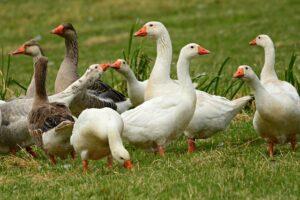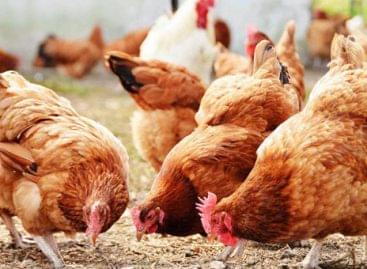The Ministry of Agriculture regards the future of the waterfowl sector as a matter of its heart
Within the domestic livestock industry, the best organized livestock sector is the poultry sector, within which special attention is paid to waterfowl. The ministry considers the fate of both goose and duck breeders to be a matter of its heart, stressed István Nagy, Minister of Agriculture, on St. Martin’s Day.

(Photo: Pixabay)
Waterfowl keeping has a strong tradition and culture in Hungary. István Nagy emphasized that products made from domestic geese and ducks kept on high-quality feed under strictly controlled conditions have a high biological value, are rich in vitamins and minerals, and their role in nutrition is unquestionable. They fit organically into Hungarian cuisine, they are indispensable ingredients of our gastronomy, but they are also necessary for a healthy life, and by consuming them, we contribute to the livelihood of 3-4,000 families involved in waterfowl breeding. The demand for goose products in our country is primarily related to a few holidays, Christmas, Easter and St. Martin’s Day, and the consumption of goose on St. Martin’s Day also coincides with the celebration of the finished new wine. A significant part of our consumption takes place through hospitality. On average, one person eats almost 1 kilogram (0.7 kg) of goose meat per year, and in order to increase this amount, the ministry has supported several consumption promotion programs in recent years.
The Ministry of Agriculture also pays special attention to compliance with regulatory and consumer expectations, and supports this with financial and professional means
In the “KAP Strategic Plan”, which is the framework for agricultural support, we maintain priority support for animal husbandry, we provide resources for the development of the poultry sector and its sub-sectors, István Nagy said. In addition to all this, the ministry also strengthens the professional and legal framework necessary for the successful operation of duck and goose farms, which enables more effective cooperation and the strengthening of mutually beneficial partnerships. With the amendment to the law that will enter into force at the beginning of next year, new regulatory elements will come into effect that will strengthen the position of producers in the food chain and promote cooperation between producers and between producers and buyers.
The minister also informed that the poultry sector is a highly export-oriented sector and contributes greatly to the improvement of the foreign trade balance
In addition to domestic consumption, a significant export commodity base is also formed, poultry meat accounts for more than half of the export revenue of meat products. The main target markets of the export-oriented sector are still the EU member states of Western Europe, France and Germany are among the biggest buyers, he added.
AM
Related news
(HU) Pro-Duck Kft.
🎧 Hallgasd a cikket: Lejátszás Szünet Folytatás Leállítás Nyelv: Auto…
Read more >The EP accepted the safeguard clauses concerning the Mercosur agreement
🎧 Hallgasd a cikket: Lejátszás Szünet Folytatás Leállítás Nyelv: Auto…
Read more >Related news
How to spend Valentine’s Day around here
🎧 Hallgasd a cikket: Lejátszás Szünet Folytatás Leállítás Nyelv: Auto…
Read more >OKSZ on the extension of the margin stop decree
🎧 Hallgasd a cikket: Lejátszás Szünet Folytatás Leállítás Nyelv: Auto…
Read more >








